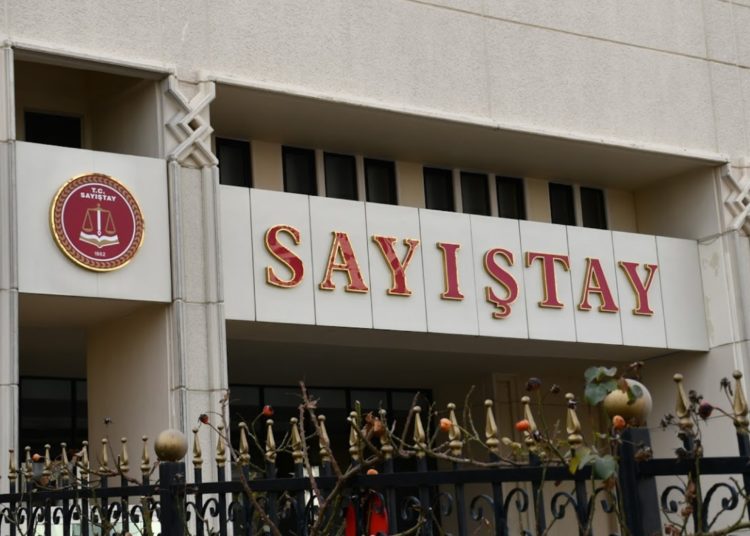Abdullah Bozkurt/Stockholm
Turkish intelligence agency MIT orchestrated a scheme to imprison two government inspectors who had audited the spy agency’s expenditures on behalf of the Turkish Parliament and found irregularities and violations in the spending of taxpayer money, a Nordic Monitor investigation has found.
The plot apparently cooked up by MIT was put into motion on July 27, 2016 when an anonymous call was made to the night shift desk of the police counterterrorism bureau at 20:28 hours. A man on a pay phone said he had critical information stashed in an envelope and left in a garbage bin behind a bus stop near the Security General Directorate (Emniyet) building in the Turkish capital. He added that the police needed to hurry to retrieve the envelope.
When the police searched the bin, they found a yellow envelope containing 17 pages that listed the names of 228 people who were alleged to be affiliated with the Gülen movement, a government critic that was already the target of a government crackdown. The names were from across Turkey and included private telephone numbers, personal identity numbers and other information, which suggested that the list was actually from MIT since it alone has the resources to compile such information.
Police record of the anonymous phone call that led to the discovery of a profiling list apparently prepared by MIT:
The agency deliberately added the names of two veteran inspectors at the Court of Accounts, an independent branch of the government that examines the accounts of public agencies and their spending and submits reports to parliament for review during budget deliberations. Inspectors Erdal Kuluçlu and Cemil Uzun had audited MIT in the past and obtained detailed information about MIT’s spending in order to determine if the agency had followed relevant laws and regulations. They red-flagged the budget expenditures that were in violation of the law, some of which were reported to parliament.
The plot was apparently coordinated with a police unit that ignored standard operating procedure in responding to such anonymous calls. The police did not bother investigating the anonymous caller, did not collect the security camera footage around the pay phone he used or the garbage bin into which he dropped the envelope. No security precautions were taken around the trash can during the search, which could have contained a bomb and thus endangered bystanders.

Due to the nature of intelligence work, MIT reports are not considered evidence in a court of law unless they are independently verified by an investigation overseen by a prosecutor’s office, which uses the police, the country’s main law enforcement agency, as investigators.
According to defense attorney Birsen Kaya, whose client Elvan Çalışkan, a chemistry teacher, was on the list, it was quite strange that the caller called a police phone number that was for internal communication only, not even listed and very difficult to obtain. The caller did not use the 155 public tip line, which is the usual case in such tips.
Kaya told the panel of judges at the Ankara 2nd High Criminal Court on July 23, 2017 that an examination of the wording in the profiling document closely resembled the style used by the intelligence agency. She also highlighted that the police did not test the envelope for fingerprints, which was another strange aspect, and that such an omission was clearly against the rules in evidence collection procedures.
Attorney Birsen Kaya’s defense statement in court revealed the MIT plot:
Next to Kuluçlu’s name on the list was a note stating that he was the man who “audits the Teşkilat,” which means the intelligence agency MIT. “It is quite clear that the expression ‘Teşkilat’ is no other institution than MIT,” said Ufuk Öztürk, another defense lawyer who represented Uzun, another auditor who was set up by MIT for a criminal probe and imprisonment.
“It is very clear that the information was obtained illegally. In fact, such information cannot be accessed by individuals or organizations other than government agencies. So much so that it is understood from the information in the papers obtained as a result of the tip that these papers were prepared by the National Intelligence Organization [MIT],” Öztürk told the court on June 16, 2017.
Attorney Ufuk Öztürk told the court that the lists were prepared by MIT:
Perhaps the oddest aspect of the scheme is that within two days of the retrieval of the letter in the garbage bin, the police wrote a letter to MIT asking about the information in the letter. MIT responded immediately on July 30, 2016 with its own report listing the names of 228 individuals and accompanying data that were identical to the ones found in the letter.
“This intelligence report is the same as the one provided by the informant [in the letter], there is no change. Nothing was added or removed. No research was conducted,” said Serkan Polat, a defendant whose name also appeared on the list, in his testimony on June 18, 2019 at the Ankara 23rd High Criminal Court.
Serkan Polat’s testimony in court pointed to MIT as the originator of the profiling list:
The spy agency apparently drew up a list of people on whom it wanted to take revenge for exposing its dirty laundry in the past and used the chaotic situation in the aftermath of a false flag coup attempt as a smokescreen to frame the people it had long wanted to punish. Based only on this piece of evidence, an indictment of 139 people was filed on March 2, 2017 by public prosecutor Tekin Küçük, who coordinated the investigation and criminal procedures with the intelligence agency.
The case file also revealed how the auditors were subjected to torture and ill-treatment in custody for days and were not even asked for an explanation as to why their names were added to the list.
In a handwritten letter submitted to the Ankara 2nd High Criminal Court on July 25, 2017, Kuluçlu spoke about the torture and abuse he suffered at the hands of the police. The police raided the home of the 46-year-old Kuluçlu on August 10, 2016 and put him in a sports hall that was turned into a detention center on the site of the Ankara Police Department’s counterterrorism building.
For 10 days he said was denied food, deprived of sleep due to a bright spotlight that was turned on most of the night, forced to lie down and sleep on the hard floor and was not provided a blanket to protect him from the cold. “I made a pillow from water bottles and used a garbage bag as a blanket,” he recalled. He had to stay in the same clothes day and night for 10 days, with no access to a shower provided.
Former auditor Erdal Kuluçlu’s handwritten statement that was submitted to the court revealed the abuse he suffered in custody:
He witnessed the physical and psychological abuse of other detainees as they were forced to give false statements. The police did not allow him access to a lawyer, interrogated him unofficially with no paper records and did not inform his family of his whereabouts.
The medical reports required by law for people in detention were written without a physical examination. He saw one person who had a heart attack and another who was paralyzed from the waist down with MS who did not receive the necessary medical attention.
When the police finally referred him to the prosecutor’s office after 10 days, he had to wait eight hours in handcuffs for the prosecutor to show up, which he never did. Around 21:30 he was brought to court for arraignment, and a judge ordered his arrest within minutes without bothering to ask any questions.

The prosecutor accused him using two mobile phones to commit a crime that was not specified. Kuluçlu said one of the phones was issued by the Court of Accounts and used only for official business and that the other phone did not belong to him. His life savings of $31,000 that was earned during 16 years of service at the Court of Accounts was claimed to be money collected through a criminal enterprise. He said that was the only asset he had managed to acquire and was planning to purchase an apartment in his hometown where he would settle after retirement.
He said the prosecutor could have easily found out from his bank records how that money accumulated during a period of years in his savings account, with transfers each month of a portion of his salary. But instead, prosecutor was quick to label it as terrorism funding and seize it unlawfully.
MIT verified the list with the same names and information, confirming that the anonymous caller was actually from MIT:
MIT’s campaign of intimidation against the auditors by orchestrating the imprisonment of those who reviewed the agency’s expenditures in the past worked. The Court of Accounts reports on MIT after 2016 revealed fewer violations. The report also showed that MIT’s assets and annual budget increased sharply in contrast to previous audits.
According to the audit report for 2018 by the Court of Accounts, MİT’s assets rose from TL 2.9 billion in 2017 to TL 3.81 billion. That figure was TL 834 billion in 2016. In the 2017 central budget, the allocation to MİT amounted to TL 2 billion, whereas this figure rose to TL 2.34 billion in 2018. In other words, the allocation from the budget increased 17 percent over the previous year.
Erdoğan pursued a strategy to increase the prominence of the intelligence agency by making it wealthier, stronger and less accountable. Over the last few years, especially after Erdoğan’s dirty secrets were laid bare by two consecutive corruption operations in 2013, the amount of money received by the agency has seen sharp increases.












